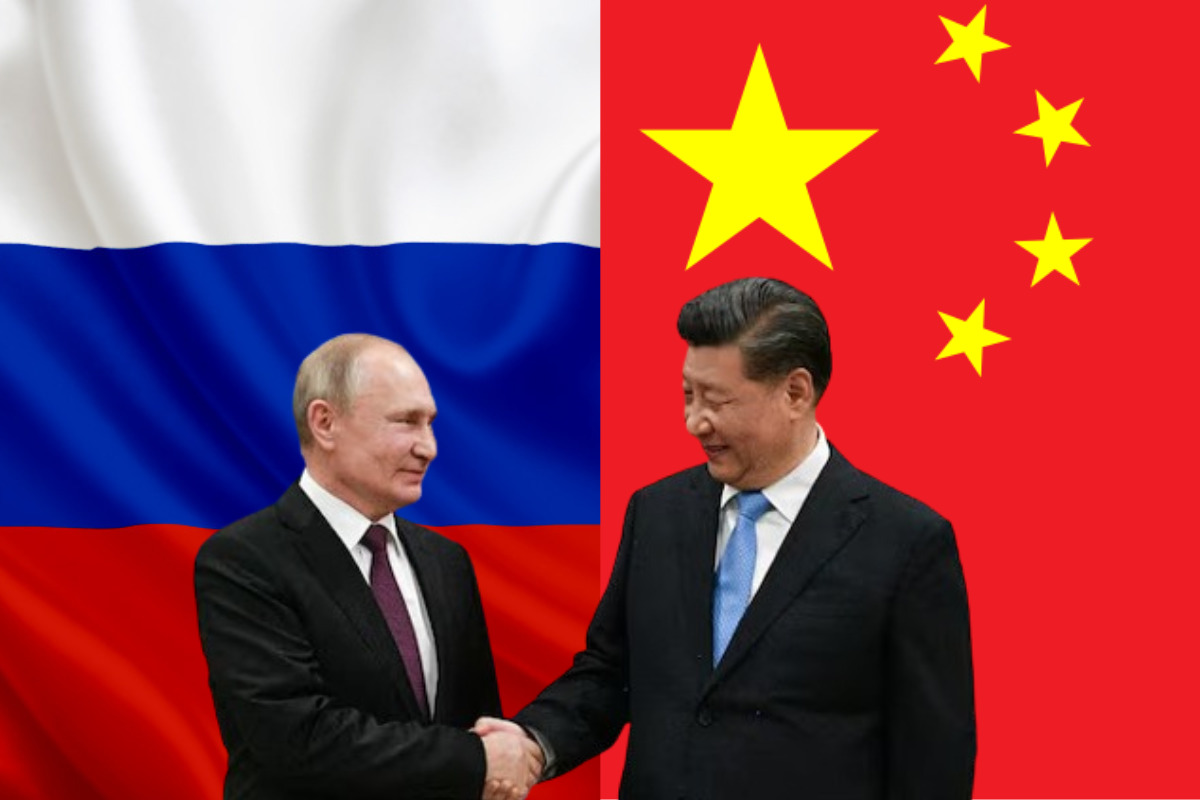NEW DELHI: Russian President Vladimir Putin met his counterpart Xi Jinping in Beijing during his two-day state visit to China. This is the Russian leader’s first foreign trip since his re-election in March and the second visit to China in just over six months. Indicating China’s strategic significance for Russia amid Western sanctions it is facing over its offensive in Ukraine.
This reflects Putin’s priorities and his bonding with Xi Jinping, a relationship that the leaders described in 2022 as one of no limits.
The Russian president is expected to see greater support from Beijing in his meeting with counterpart Xi Jinping for his war effort in Ukraine and his isolated economy. The Kremlin said that two leaders will hold informal talks over tea this evening to discuss Ukraine, Asia, energy and trade.
ALSO READ: Modi congratulates Putin, pledges stronger India-Russia ties
Putin’s newly appointed Defense Minister, Andrei Volosov, as well as Foreign Minister Sergey Lavrov, Security Council Secretary Sergey Shoigu and foreign policy adviser Yuri will also attend along with Russia’s most powerful CEOs.
The two leaders are set to sign a joint declaration following the talks.
China has strengthened its trade and military ties with Russia in recent years, as the United States and its allies imposed sanctions against both countries. According to Chinese figures, China-Russia trade has boomed since the Ukraine invasion and hit $240 billion in 2023.
In an interview ahead of his visit, Putin hailed Beijing’s genuine desire to help resolve the Ukraine crisis.
Putin and Xi Jinping will take part in a gala evening, celebrating 75 years since the Soviet Union recognized the People’s Republic of China, declared by Mao Zedong in 1949. Putin will also visit Harbin in north-eastern China, a city with strong ties to Russia.
In an interview to a media channel, Aynar Tangin, a political and economic commentator, when asked about what Putin and Xi seek from the current visit, explained that the economies of China and Russia are booming.
China has manufacturing and trade relations with over 120 countries. Russia has the most natural resources in the world. China and Russia have a large geographical area, which means they have a lot of influence in Europe and the Middle East. This makes them a very powerful combination.
On asking about the expectation from a closed door meeting that is expected to take place, he elaborated that the meeting is happening in a 1 plus 4 format. (i.e. one party, Ukraine and four others: Switzerland, Russia, Germany, and France are involved.)
ALSO READ: Biden attributes ‘Xenophobia’ to economic woes in India, China, Japan
The focus is on talks about Ukraine. Trust is a major challenge due to past broken agreements (Minsk 1 and Minsk 2). While Russia has military advantage, taking over all of Ukraine would be impractical. Instead, both sides need to find a way to solidify their gains.
When questioned about Putin’s strategies for the economy and how China’s role is essential to his progress and actions in this area, Tangin stated that China is a big chance for both countries. “China has poor resources per person compared to other countries, while Russia has a lot of natural resources and a strong military. Both countries are facing pressure from the United States, but they will likely focus on economic issues rather than war.”
He further added that it’s time to stop fighting and start finding ways to deal with global problems like climate change, the economy, and conflicts such as the one in Gaza. Tangin added, “In a world which is changing like India and Iran are getting closer, nations are speaking out more freely now. They are saying what they think, which wasn’t common in the past. Now, the focus is more on economics than on weapons.”
With the meeting still in process, it’s going to be interesting to see if there are limits on the ‘No Limits Partnership’.










